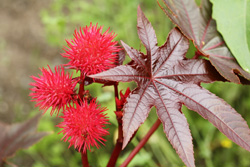Novel, cost-effective vegetable oil-based lubricant
Lubricants reduce heat, friction and wear when applied as coatings to moving parts. Currently, nearly 90 % of lubricants are produced by the petrochemical industry, resulting in depletion of natural resources and a heavy environmental burden. Bio-lubricants represent an emerging market in which small and medium-sized enterprises (SMEs) are particularly active. However, to enhance competitiveness, the performance of bio-lubricants must be increased while at the same time cost-effective production processes must be developed. The EU-funded ‘Development of new bio-lubricants and coatings using standoils from linseed, castor and tung oils’ (Stanlub) project was conceived to address these needs. Investigators identified a mixture of three different plant oils as raw material to substitute petroleum. They then developed the appropriate production process resulting in a reduced number of steps and thus production cost. Stanlub bio-lubricants were field tested, demonstrating good performance in metal working applications, railway switches and chainsaws. Commercial development of Stanlub bio-lubricants should significantly boost the competitiveness of European SMEs working in the growing bio-lubricant sector. Furthermore, it has great potential to enhance rural economic development, ensure worker safety and decrease hydrocarbon pollution.

